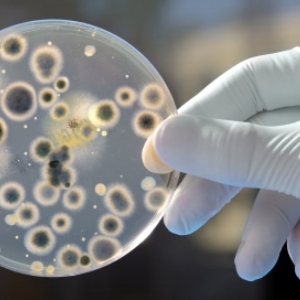
Your immune system has developed a very efficient system to recognise and destroy most of the micro-organisms that enter your body.
In order to do this, the immune system has to be able to distinguish between ‘us’ and ‘them’ – in other words, this is normal body tissue that belongs here, and that is a dangerous intruder.Micro-organisms can get into your system in a variety of ways – you can breathe them in, they can hide in your food and drink and get into your stomach that way. They can also get through a cut or a bite in the skin or into any other openings you have, such as the ears, or the vagina.
The skin is the body’s first line of defence. It fights off invading pathogens by providing both a physical and a chemical barrier. But that is only the start of the process. Read more about it right here.
The respiratory tract is a very vulnerable part of the human body. Micro-organisms (such as the cold or flu viruses) most frequently attack this area. Cilia (small hair-like structures) and mucus lining the tract work to expel micro-organisms that have managed to enter.
Stomach acids and saliva manage to destroy most pathogens that have managed to enter your digestive system, although some, such as the polio virus, can survive this acidity.
Your immune system is the body’s second line of defence. It is intricate and powerful and is constantly on the alert – even when you are sleeping.
Your lymphatic system is the basis on which your whole immune system rests. It is a circulatory system that carries lymph – a transparent fluid that contains white blood cells that fight against invading micro-organisms. Lymph nodes, which swell up when you have been infected by a micro-organisms, are like clearing houses or filters for the white blood cells.
There are two types of lymphocytes (white blood cells): B lymphocytes which are made in the bone marrow and T lymphocytes which are made in the thymus. When foreign invaders are detected, the B lymphocytes start producing antibodies, which can protect you against certain diseases in the future. T cells have the job of marking and attacking cells which they think are hostile.
If your immune response is low (such as in Aids patients), then micro-organisms will be able to get into your system and multiply, without encountering much resistance. This will make you ill.




 Publications
Publications
 Partners
Partners














